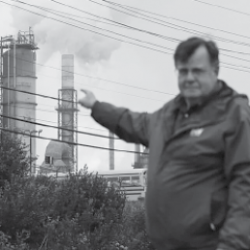This issue's articles are available below.
ELI Members may login to read and download current and past issues of the Forum.
Not a member? Join now!

LEAD FEATURE Attorneys in our varied roles need to step up and address the climate crisis for the sake of every person and for the public good. All lawyers must be sustainability lawyers now.
With SIDEBARs from lawyers Christopher K. Carr and Arlena Barnes.

CENTERPIECE The data show U.S. employment and the overall economy can perform well when the price of crude is high as well as when it is low. What upsets policymakers and producers is price volatility, and there are not many ways to insulate the United States from global oil shocks.
With a SIDEBAR from Yossie Hollander of the Fuel Freedom Foundation.

COVER STORY A sustainable, circular economy may depend on solutions coming from life itself. So think of today’s biology not as just a science, but as a precision-manufacturing platform — digitally interconnected, increasingly automated, flexible, and cost-effective.
With SIDEBARs from the frontiers of the emerging biomanufacturing economy.

PROFILE When it comes to those yawn-worthy, overly technical, bureaucratic reviews of major projects like refineries and pipelines — is public participation really even worth the effort? Citizen Gordon Danzell’s lonely battle against dangerous air pollution says yes.

The United States is not a party to the UN Convention on the Law of the Sea, a treaty it rejected in 1982. This Debate addresses implementation of the accord’s environmental and natural resource provisions, which caused the U.S. pullout. With another new administration taking over and possibly signing the treaty, UNCLOS, led by Washington, could help to secure benefits for all Americans while helping the oceans overcome climate change, pollution threats, and biodiversity collapse.
To “Build Back Better,” Biden Must Undo Trump’s Obstruction Legacy.
Water, Water, Everywhere but Too Little in Mississippi, Ciénega Creek.
A New Era of Federal Engagement Begins With States and Localities.
The Pandemic Could Not Derail Corporate Sustainability Ambition.
Disorder in the Courts — More Than Usual Transition Upheaval.
Biden Off to the Races — With a Boost From the D.C. Circuit.
Modernizing Regulatory Review for Energy, Environmental Policy.
Society at Cluster of Inflection Points.
An Insightful History, 40 Valuable Prescriptions.
ELI's New Handbook Guides Marine Spatial Planners
Evaluating the Effects of Conflict and Fragility on Environmental Outcomes.
An Ancient Text for Modern Problems.